

Financial independence can seem like the holy grail.
You may be striving towards it but feel bombarded by lots of conflicting messages on how best to attain it. These five points give an interesting perspective:
Income is not the same thing as wealth
Having a high salary can help you accumulate wealth but that’s no good if you’re still spending more than you earn. That’s why you might hear of a professional footballer earning £30,000 a week going bankrupt while a bus driver, who’s saved diligently all his life, can retire a multi-millionaire. To avoid the spending trap, remember your real wealth or net worth is the amount on your balance sheet – your assets minus your liabilities. Regardless of what your income level might be, try and achieve financial independence by thinking long term. What goals can you put in place regarding your career plans, your investments or any property you may have?
Create surplus funds
To take advantage of any investment opportunities, you need to have sufficient money to invest, and to be successful in investing, you need to reach a critical mass. At this point, the returns generated on your savings will have more impact. For example, a 10% return on £10,000 would give you £1,000 before tax, while the same return on a portfolio of £1,000,000 would give you £100,000 for the same amount of effort and research.
Amassing wealth is a gradual process but through small steps to cut expenses or generate income, it can amount to something over time.
When the interest your money has earned starts to earn interest too, that’s when you’ll really start to notice the difference. This is where the power of compounding comes in. It also means you can invest more the next time an opportunity comes round and so on.
Taxes have an impact
Think carefully about where you hold your assets. Remember not all income is treated the same. You may have a great deal of wealth but be generating a lot of taxable income, while someone who has attained their goal of financial independence may have maximised their capital gains allowance and done some tax-efficient retirement planning.
Take control of your time
Your definition of financial independence may be being in charge of how you spend your time each day. Enjoying what you do for hours on end can be better than any financial return. So while you may not have quite reached your ultimate investment target of maintaining your ideal lifestyle without a monthly paycheck, having the freedom to spend your time how you want is worth a great deal.
Promote the same values
Becoming financially independent is easier if the rest of your family shares the same goal and beliefs. Does your husband or wife have a similar attitude to saving, investing and risk as you?
Encourage your children to grow up to be financially independent and manage their own money. Offer them support but don’t let them grow up always expecting a financial hand-out or free board. You’ll never gain financial freedom and neither will they.
Sources
https://www.thebalance.com/achieve-financial-independence-358175
https://inews.co.uk/sport/football/bankrupcy-football-finances-261940



